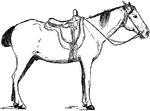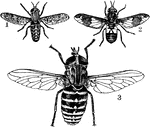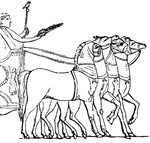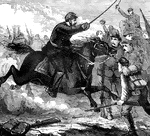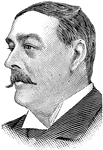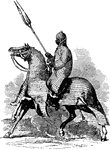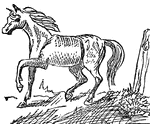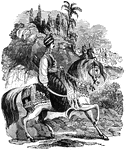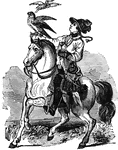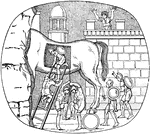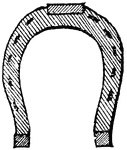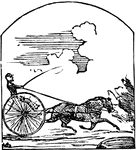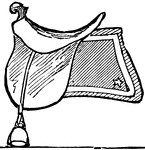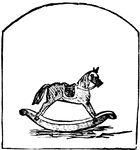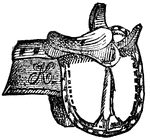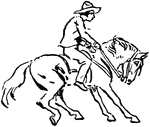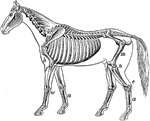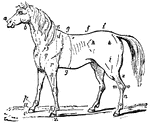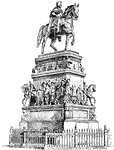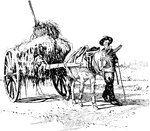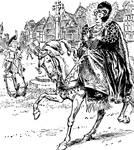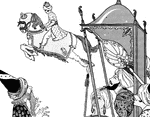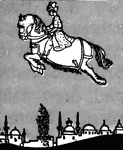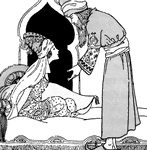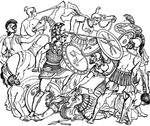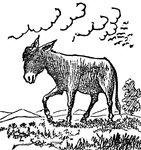
Donkey
A beast of burden of the horse family, having a peculiarly harsh bray, and long, slouching ears.
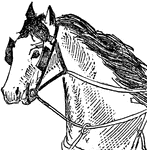
Rein
The strap of a bridle, fastened to the curb or snaffle on each side, by which to restrain and govern…

Spur
An instrument having a little wheel, with sharp points, worn on a horseman's heels, to prick a horse…

Hames
The curved pieces of wood or metal by which the traces and body-harness of a horse are attached to the…
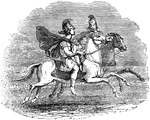
Theseus and Helen
"In the year 1234 B.C., Theseus came to the throne of Athens. He was one of the most renowned characters…
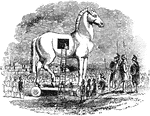
Trojan horse
"According to the poets, it was by stratagem that this famous city was at last overcome. They tell us…
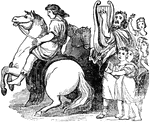
Victors at the Olympic Games
"From a very remote period, the Greeks had been accustomed to engage in contests of strength and agility…

Dog-cart
A one-horse vehicle for spotsmen; so called from being used to carry dogs for hunting, in an open space…

Stirrup
A kind of ring, for receiving the foot of a rider, and attached to a strap which is fastened to the…
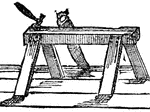
Trestle
A movable frame or support for anything, consisting of three or four legs secured to a top-piece, and…
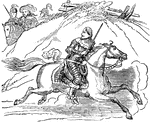
Escape of Charles II
"That prince escaped from the battle of Worcester as soon as he saw that the day was lost. With a small…
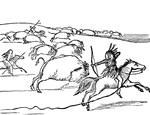
Native Americans Hunting
"The American buffalo, or more properly bison, is an object of great importance to the hunters…

Palaeotherium magnum
"The Palaeotherium magnum was of the size of a horse, but thicker and more clumsy; its head…

Botfly Larva
"After attaching themselves to the walls of the stomach, the botfly larva are nourished by the blood…
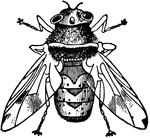
Mature Botfly
"After attaching themselves to the walls of the stomach, the botfly larva are nourished by the blood…
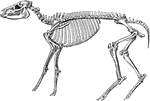
Skeleton of a mesohippus bairdi
"Skeleton of Mesohippus bairdi, the three-toed ancestor of our horse. This animal was about the size…
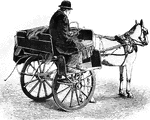
Jaunting car
"Each is a two-wheeled affair, with seats high up over the wheels and steps below on which our feet…
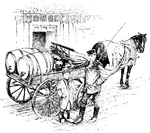
Danish Milkman
"Denmark is one of the best dairy countries of the world, and I doubt whether there is any other land…

Carriole and Pony
"The carrioles are little carts not unlike our American sulkies, save that each carriole has a seat…
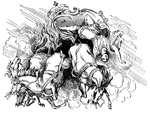
Phaethon
"Then Phaethon beheld the world on fire, and felt the heat intolerable. The air he breathed was like…

Edward Lear's Rhymes
There was an old man of Nepaul, from his horse had a terrible fall; But, though split quite in two,…
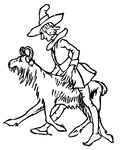
Simple Simon
From a nursery rhyme, Simple Simon Met a Pieman. The Simple Simon went a-hunting for to catch…

Centaur
"These monsters were represented as men from the head to the loins, while the remainder of the body…
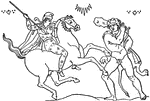
Hippolyta and the girdle
"Hippolyta, the queen, received him kindly, and consented to yield her girdle, but Juno, taking the…

The Dioscuri
"Castor and Pollux were the offspring of Leda and the Swan, under which disguise Jupiter had concealed…
